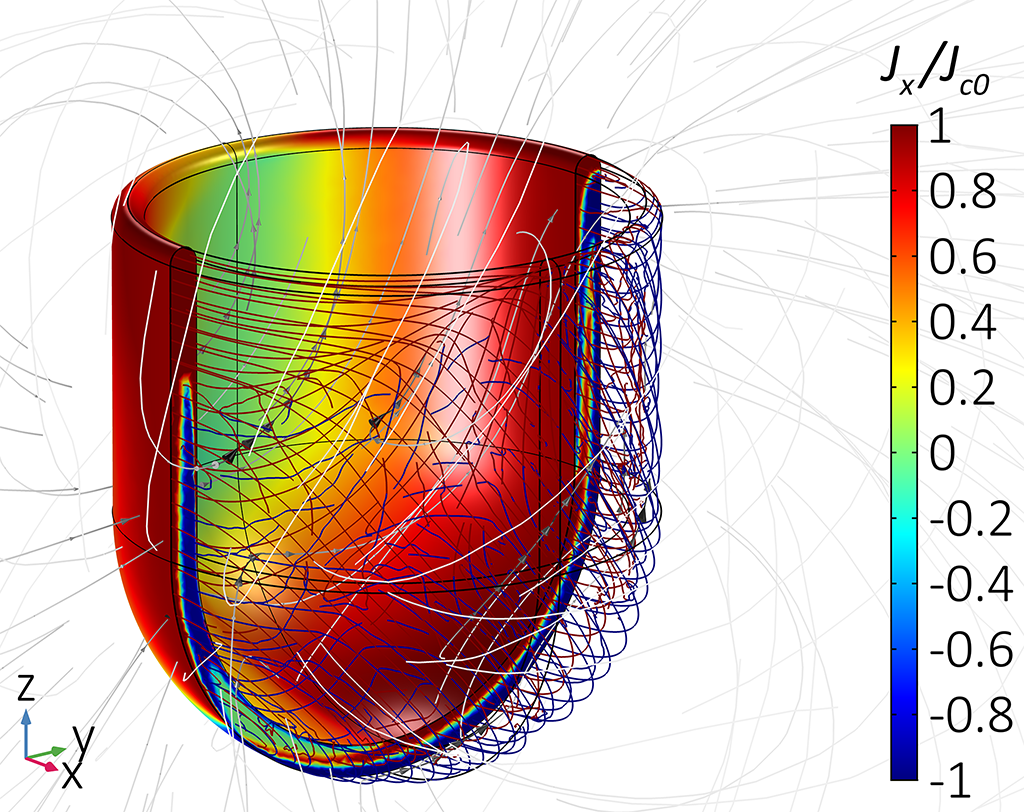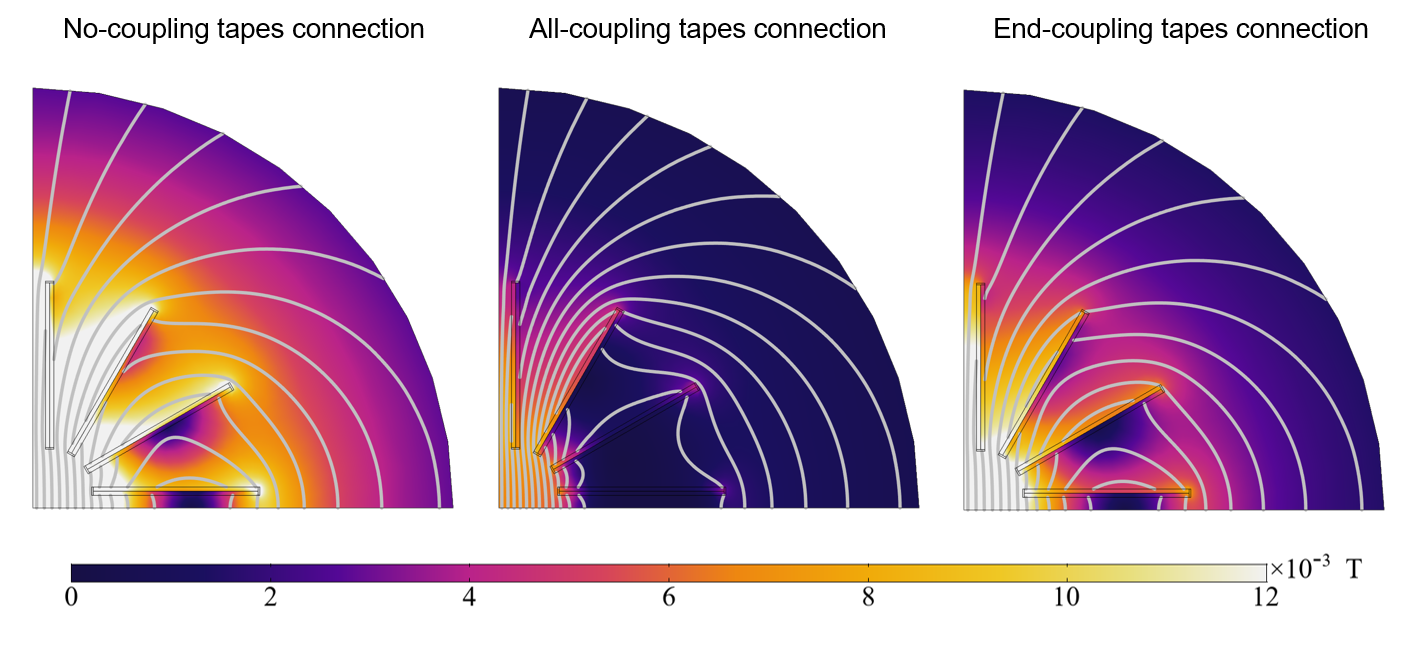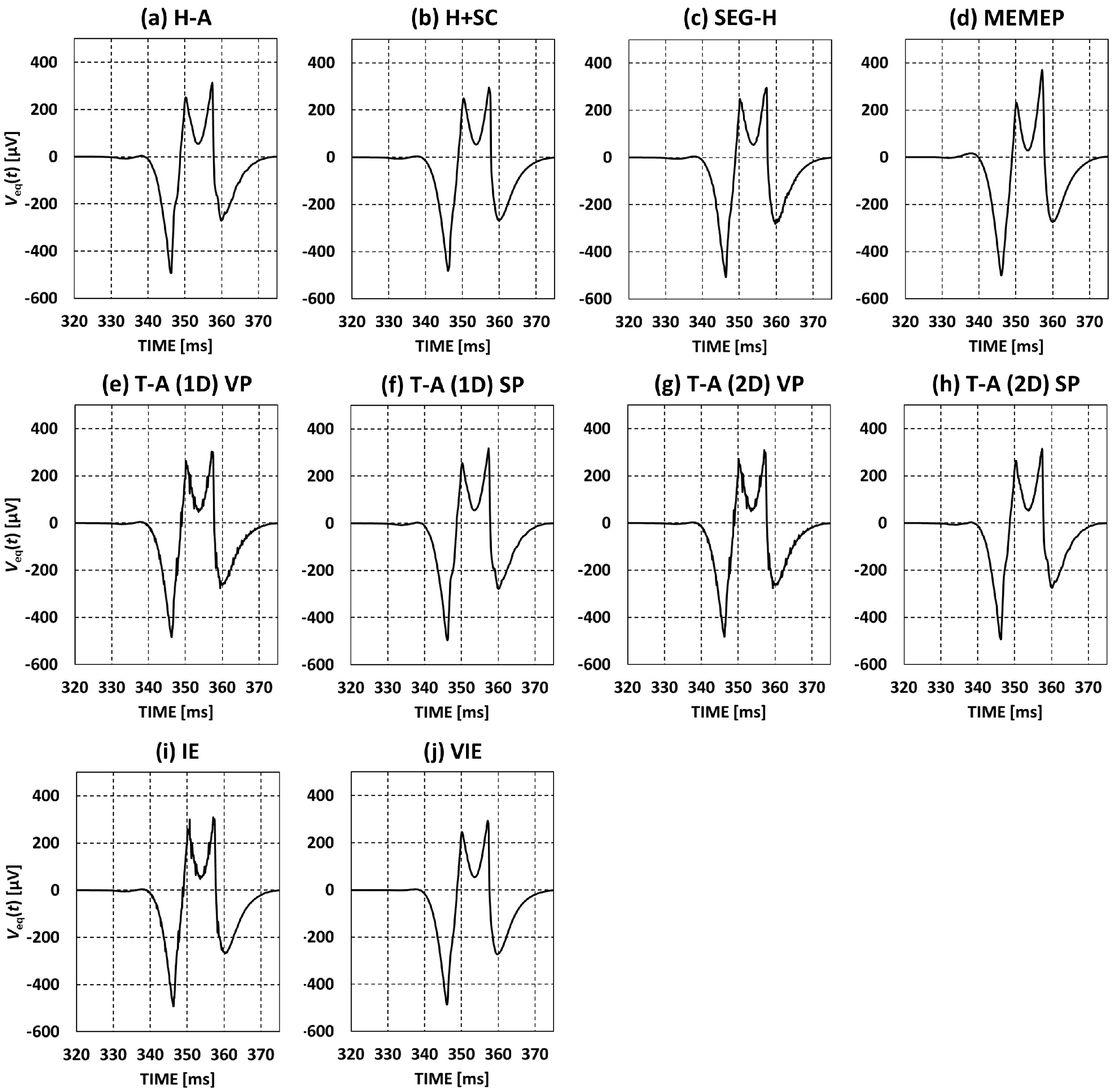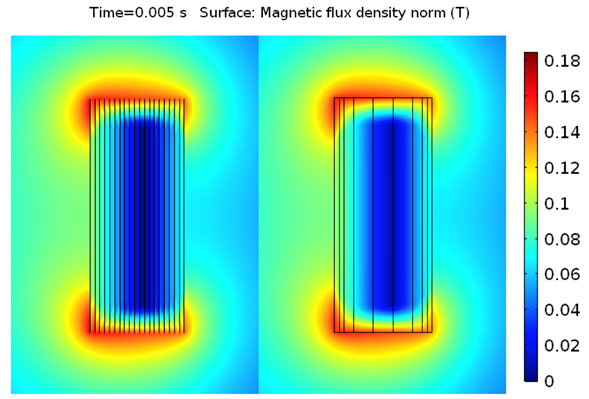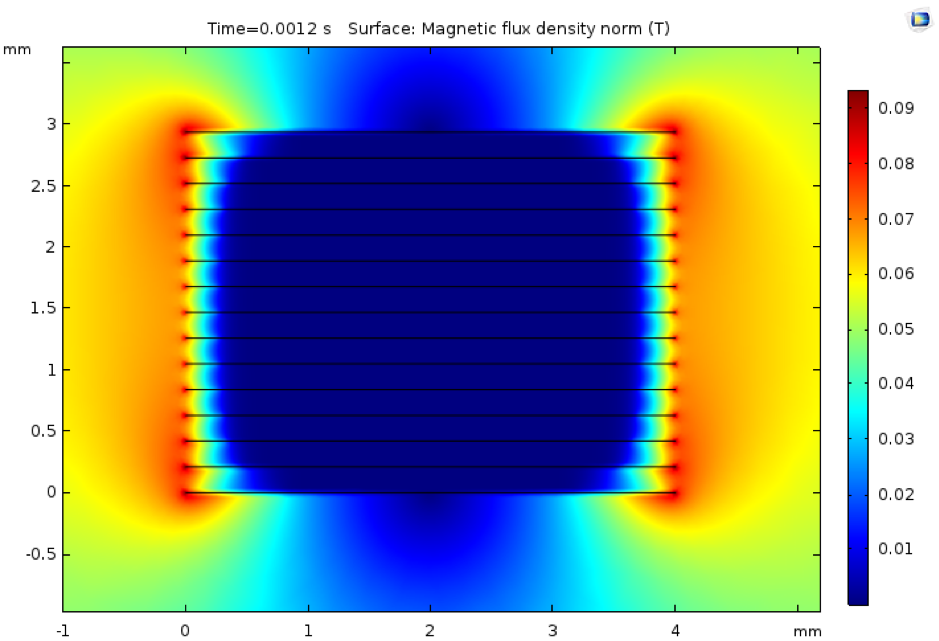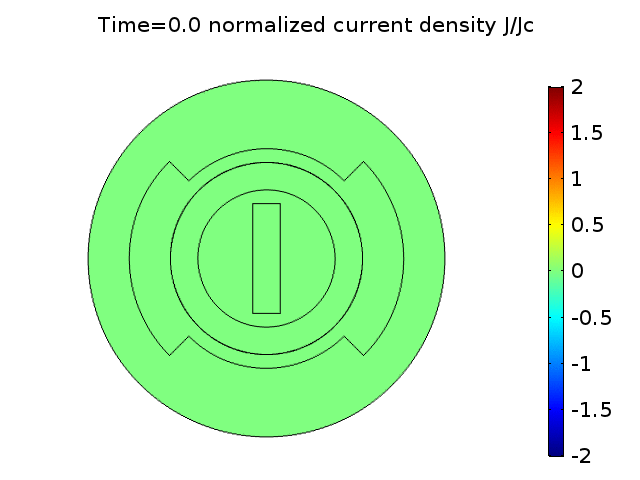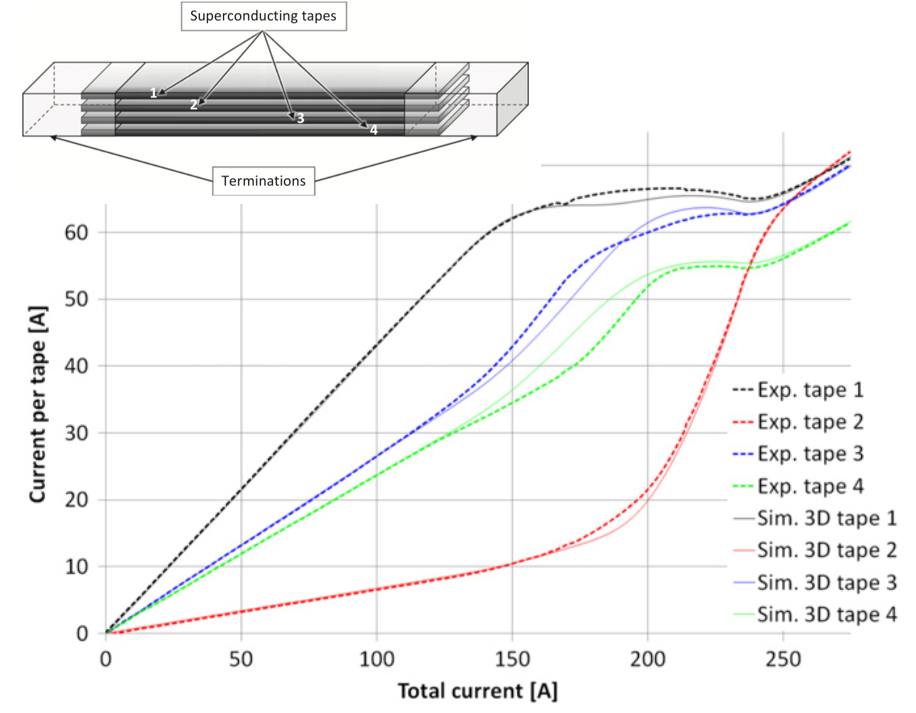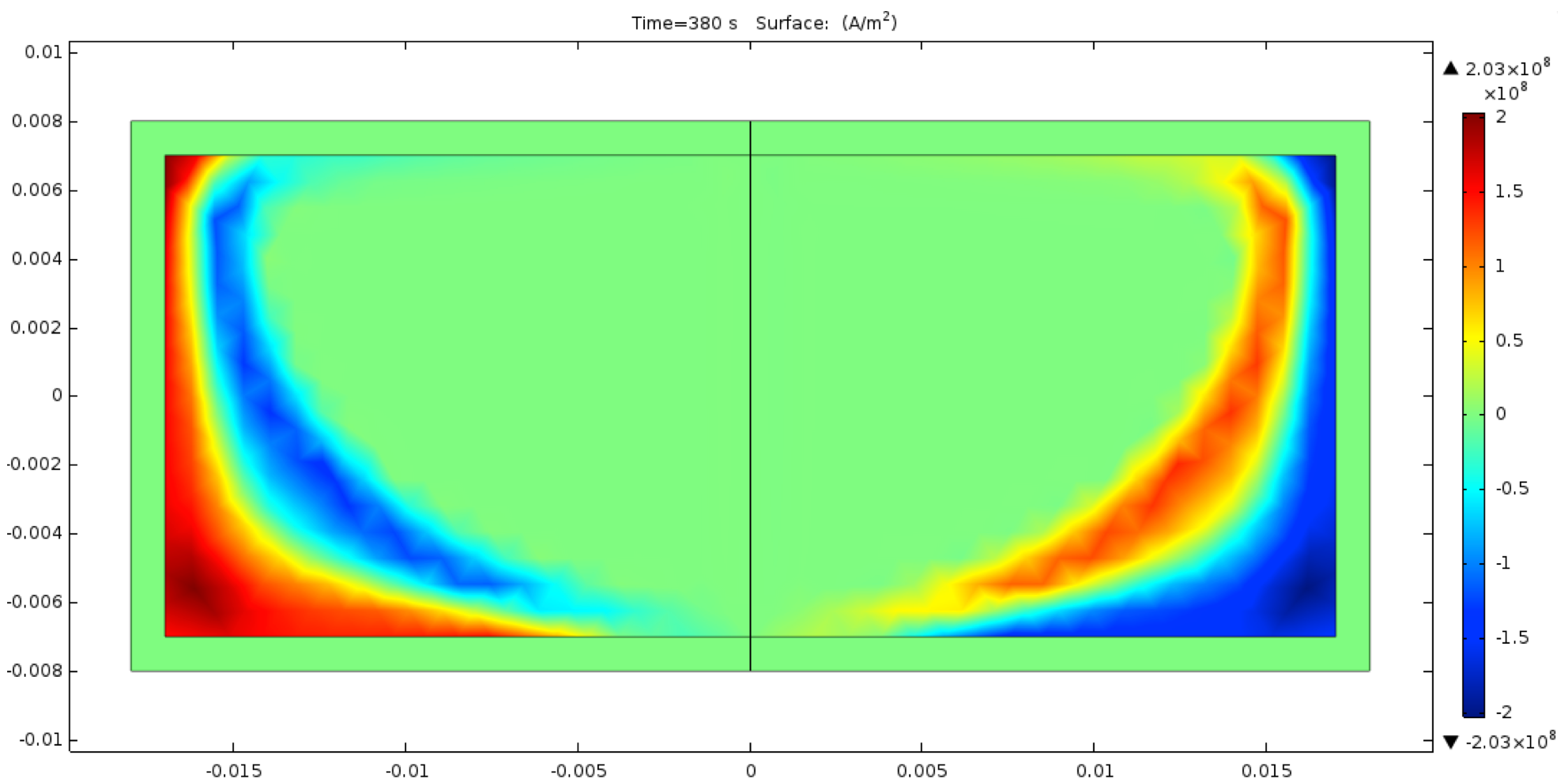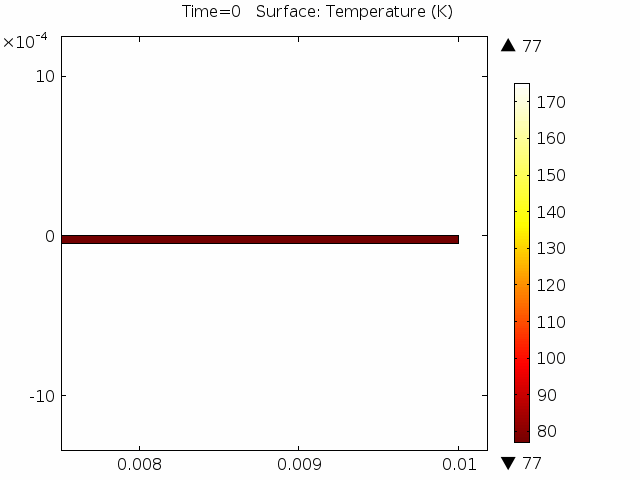A-V formulation for numerical modelling of superconductor magnetization in true 3-D geometry
by administrator on Mar 20, 2024 2:23:52 PM
This model was shared by Mykola Soloviov, Institute of Electrical Engineering, Slovak Academy of Sciences. Model file of superconducting cup magnetization in the diagonally oriented external AC magnetic field. The model was saved in the Comsol v. 5.4 without generated mesh and solutio …
Coupled A-H formulation for magneto-thermal transients in HTS magnets
by administrator on Mar 15, 2024 2:07:11 PM
These models were shared by shared by Lorenzo Bortot, CERN. The two models implement a coupled A-H field formulation in FEM, solving for H in the superconducting tapes, and for A elsewhere. The tapes are represented either by means of 2D domains or 1D thin-shells. For the second case, …
New benchmark problem for electromagnetic modelling of superconductors: the high-Tc superconducting dynamo
by administrator on Mar 15, 2024 1:53:53 PM
The high-Tc superconducting (HTS) dynamo has recently been proposed as a new benchmark problem for the HTS modelling community. The benchmark geometry consists of a permanent magnet rotating past a stationary HTS wire in the open-circuit configuration and assumes for simplicity the 2D …
H-ϕ formulation in COMSOL Multiphysics for simulating the magnetization of bulk superconductors and comparison with the H-formulation
by administrator on Mar 15, 2024 1:49:01 PM
These models use the H-phi formulation to efficiently calculate the magnetic field produced by a superconducting bulk magnetized by zero field cooling in a uniform magnetic field. The models are created in COMSOL Multiphysics 4.3b and COMSOL Multiphysics 5.5 in order to be more access …
T-A multi-scale and homogeneous models for benchmark #3
by administrator on Mar 15, 2024 1:31:56 PM
These two models address the analysis of the Benchmark #3, a 20 HTS tapes stack. The models show how the multi-scale and homogeneous methods are adapted to be used in conjunction with the T-A formulation. The achieved simplification in the description of the system allow to reduce the …
T-A formulation for modelling 2G HTS stacks
by administrator on Mar 15, 2024 1:24:41 PM
Impressive work Nothing else matters Impressive work Nothing else matters The model shows how to use the thin strip approximation for the superconducting coated conductors to speed up calculation. The model simulates the magnetisation of a 2G HTS stack. The T formulation is used for m …
Mixed A- and H- formulation for modeling electrical machines with superconducting windings
by administrator on Mar 15, 2024 1:20:57 PM
The model uses the H-formulation for the superconducting windings and the A-formulation for the non-superconducting parts. Two important lines are defined: the “tramodel” lines, which separates the two formulations, and the “rotation” line, which separates the fixed and rotating parts …
Modeling and simulation of termination resistances in superconducting cables
by administrator on Mar 15, 2024 1:13:58 PM
The models presented here are used to simulate termination resistances which are largely responsible for the uneven distribution of currents in superconducting cables [1]. For this purpose, four different models are presented. The first is a 0D stationary model, where time enters as a …
Superconducting magnetic bearing composed by a permanent magnet and bulk HTS sample
by administrator on Mar 15, 2024 1:11:12 PM
In the considered examples, the HTS sample is either a bulk superconductor or stacks of 2G wires. In the second case, the 2G stack was homogenized in order to speed up the solution. The movement between the HTS and the permanent magnet is avoided in the model by restricting the simula …
2-D electro-thermal model for simulating non-uniform quench in 2G HTS coated conductors
by administrator on Mar 15, 2024 12:57:24 PM
The model calculates the time evolution of the electric potential and the temperature in a 2G HTS CC when a transport current is applied in presence of a low Jc region (defect) in the tape. The heat generated at the defect location creates a normal zone that propagates along the tape. …
